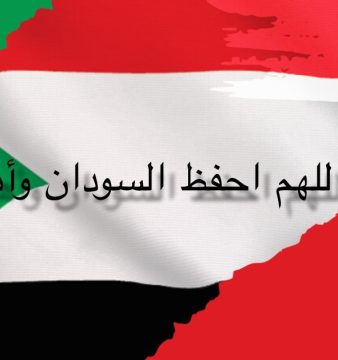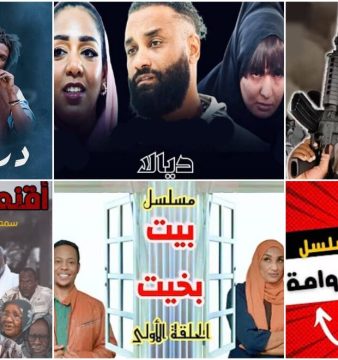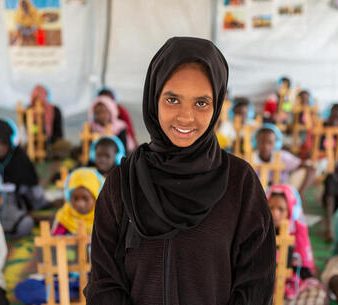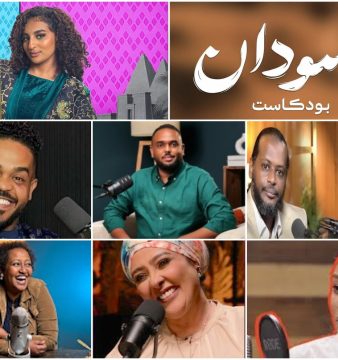The Sudanese Organisations Focusing on Youth Development in Sudan
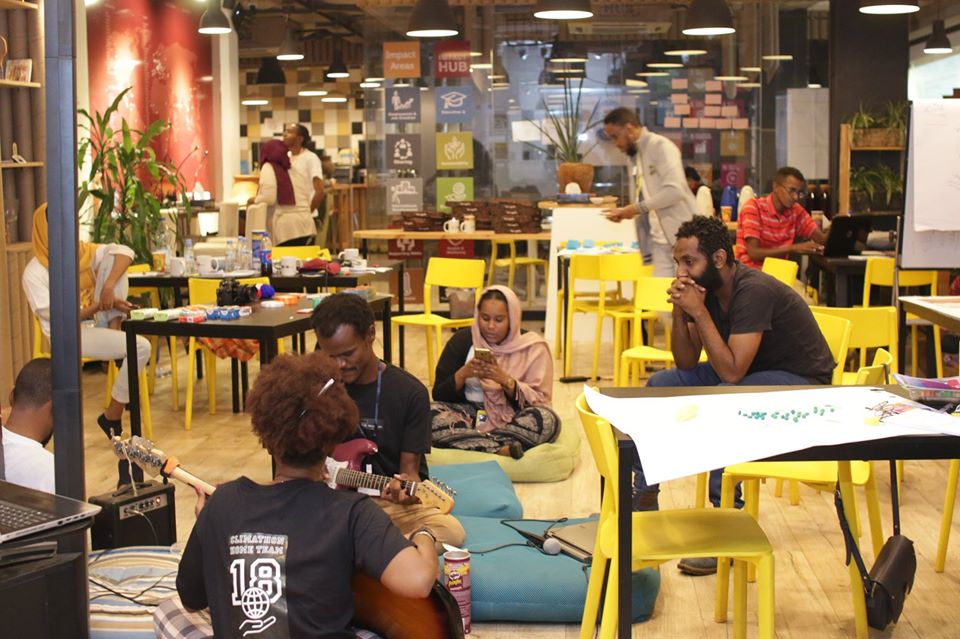
Unemployment is one of the world’s most critical problems today. Sudan has one of the world’s highest unemployment rates with many of the country’s youth, which make up 40% of Sudan’s population, are unemployed.
However, there are many Sudanese organisations and initiatives in Sudan and abroad, which are focusing on youth development, empowering the youth, and encouraging or building an entrepreneurial community.
Self-employment is one of the solutions of unemployment by empowering and encouraging job seekers to become their own bosses or entrepreneurs. Entrepreneurship is the process of designing, launching and running a new business, which is often initially a small business. An entrepreneur is ‘the owner or manager of a business enterprise who, by risk and initiative, attempts to make profits’. According to economist Joseph Schumpeter, an entrepreneur is a person who is willing and able to convert a new idea or invention into a successful innovation.
In recent years, young Sudanese men and women started exploring entrepreneurship and other means of self-employment. In addition, many organisations are working on empowering the youth by offering them mentoring, training, workshops, creative and healthy work environments, and in some cases, funding. They also work on helping the youth to become dynamic agents in their communities and help them develop and pave their own way to success.
Here are a some of the leading Sudanese organisations focused on youth development and empowering creative young innovators by helping them develop their inventions and giving them all the mentoring they need.
Sol For Change

Sol For Change is a social movement organised by the youth for youth to enhance arts in Sudan. Sol symbolises the human (Soul) and the musical key (Sol) which is in their philosophy they are trying to connect the people and communities with arts. ‘When I was young, my mom used to support all my artworks and hangs them in the walls, although they were not good enough, they expressed me, my feelings, my vision, part of my thoughts. I felt appreciated and understood and I wanted other artists across the country to feel the same,’ said the founder of Sol For Change, Abdulrahim Faisal. With his love and appreciation for the arts, the mechanical engineer, founded Sol For Change in 2015 when he was still a student. Now he’s a full-time employee as well as the machine running Sol For Change. ‘The biggest challenge that faces us today is time management, as the whole Sol team are either employees or students. Plus, we’re working really hard on having a centre of our own to hold our meetings and make other activities,’ said Faisal.
Since its establishment, Sol For Change has organised many galleries, exhibitions and other events in collaboration with hosting centres, Nahid Toubia Centre and the British Council. Sol is yet to have their own space. The most important event was Safe Place, which is a place where everyone gets to tell their story, with only two rules:
1. It has to be a real story.
2. It has to be yours.
Sol For Change’s mission is to encourage people to express themselves through different art forms and help spread art culture. In addition, they encourage young artists to develop their skills and help them learn how to use arts as a source of income. To achieve this, Sol For Change has started another sub-project called Sol Creatives, which helps connect young ambitions, freelance artists, with business owners with the aim to help them find jobs/projects that suits them. Sol Creatives works as a link between business owners and artists and takes cares of all the legal and managerial responsibilities. They offer all this for a really small commission.

Sol For Change is self-funded, all of their 12-member team are volunteers, and they were focusing on the youth only, but Sol Creatives works with any age category.
Through recent years, many people benefited from their activities and programmes, and more than 100 people benefited from the newly-established Sol Creatives.
Sol For Change also has a podcast on Soundcloud called 6alas Fan where they discuss youth participation in the art scene in Sudan and the difference between the academic artists and non-academic artists. ‘There’s a huge gap between academic artists and self-taught artists. We try to fill that gap and help connect both categories together,’ said Faisal.
During the Sudanese revolution, which began in December 2018, artwork flooded the walls and streets of Sudan and Al Qeyada, spreading across Khartoum and onto other big cities. ‘The revolution has created a state of acceptance and admiration of arts in the community, artists must use this opportunity to create a link between the recipients and arts. It also explained to the community that artists are ordinary individuals and art itself is originally a message that reflects the individual’s various situations such as his suffering, ambitions, and others,’ said Faisal.
For more information on Sol For Change, visit solforchangesudan.wordpress.com or find them on social media on Facebook: Sol For Change @SolForChange; Instagram: @sol_for_change; Twitter: @SolForChange; LinkedIn: 249Startups.
Impact Hub Khartoum
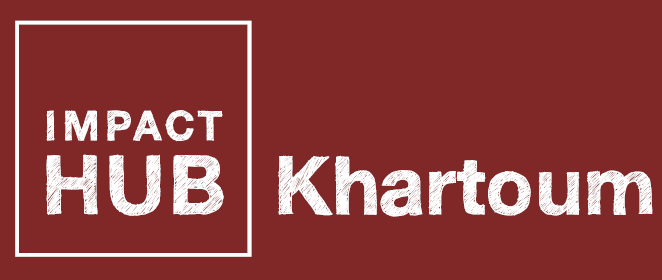
Impact Hub Khartoum is one of the global networks of Impact Hub, the world’s largest network focused on fostering entrepreneurship, idea incubation, business development and offers co-working spaces. It is a vibrant community of passionate and entrepreneurial people.
Impact Hub Khartoum was established in 2015 focused on three elements:
1. Space: It gives members a suitable co-working space, that is comfortable, aspiring, flexible and highly functional to work, meet, learn and connect.
2. Training: They offer members, consultancy and basic training in managerial skills.
3. Network: They create a vibrant community between members, and their clients or customers. They also offer master classes in marketing and strategies, as well as provide members with access to the internet, office supplies and other services.
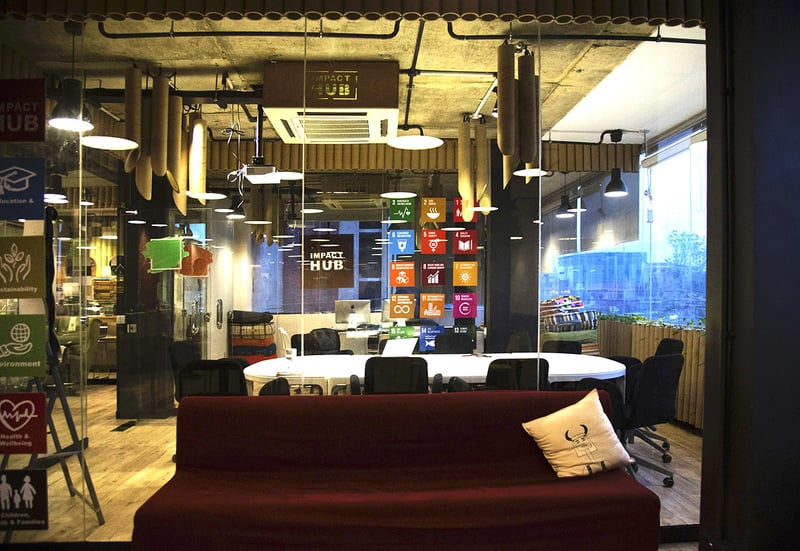
Impact Hub Khartoum host many monthly activities such as the business clinic, which is a consultancy hour for entrepreneurs and a community building lunch for all the members to connect the hub’s members, and help them learn from and interact with each other. The hub is a convertible space where they can reorganise it to host galleries, musical nights, movie nights, and more.
Impact Hub Khartoum plans to open another hub in Al Qadarif, which will focus on agricultural enterprises and activities, and it will have arable land attached.
‘I think the biggest challenges that face the entrepreneurs are issues of capacity building, there’s also a lack of educational training. Plus funding is very hard because of the high risk of investing in startups. Also, the US sanctions on Sudan Deprived them of external financing, software, and global competitiveness,’ said Husameldin Elnasri, co-founder of Impact Hub Khartoum. He believes that the SMEs sector in Sudan is very promising. There’s a huge opportunity for the young ones to create new ideas that may help in developing the community and find innovative solutions for daily life challenges.
For more information on Impact Hub Khartoum, visit khartoum.impacthub.net or find them on social media on Facebook: Impact Hub Khartoum; Instagram: @impacthubkhartoum; Twitter: @ImpactHubKRT; LinkedIn: Impact Hub Khartoum
249Startups
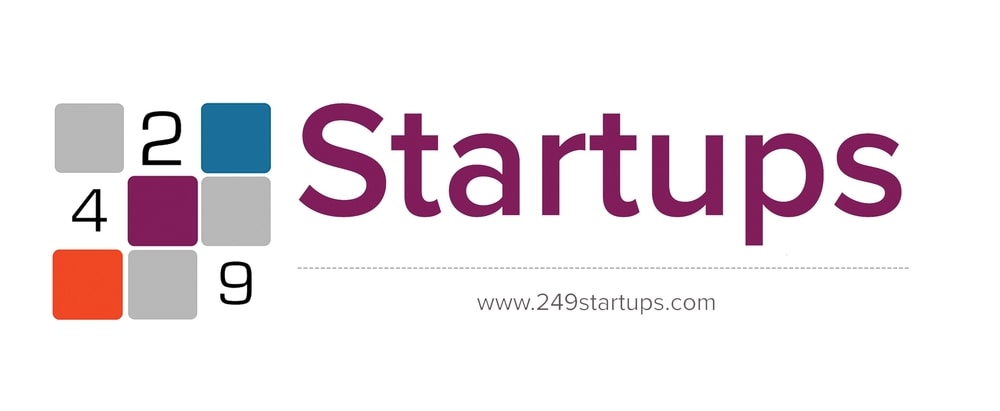
249Startups is a social enterprise that fosters and supports bright and passionate entrepreneurs. Established in April 2018, with the mission of developing a vibrant entrepreneurship ecosystem that supports the growth and development of new startups in Sudan by providing them with an enabling environment and a set of different programmes and activities. ‘We attract different people with unique skills and talents to connect, collaborate and grow together, as well as attracting investors to Sudan,’ said managing partner of 249Startups, Ahmed Elmurtada.
249Startups carries out a series of events, workshops and specialised programmes for Sudanese entrepreneurs and start-ups including masterclasses in essential subjects for start-ups, specialised training or access to potential funds, providing local/global mentoring and coaching. Members have access to a work area, internet, meeting room, events venue and office supplies and services. 249Startups is also working on network building to allow members to socialise and build their own networks within the entire community as well as connect with experts and professionals.
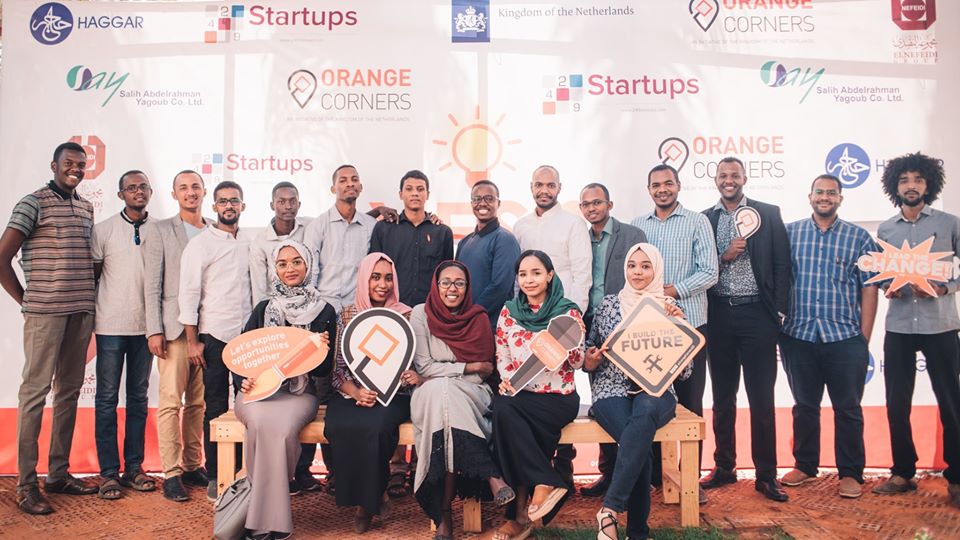
249Startups commonly collaborate with Orange Corners Sudan, which was founded by the Embassy of the Netherlands in 2018. One of their programmes, which supported by Haggar Group, AlNefeidi Group, and Yagoup Group, supports 40 entrepreneurs per year in Khartoum. It provides selected entrepreneurs with access to collaborative workplaces, intensive training, business development support, networks and supply chain and connecting entrepreneurs to potential funders as well as world-class mentorship by executive partners from the private sector.
Entrepreneurs are paving the way and shaping a more hopeful future for the younger generations, the mind-set of people is changing, now they believe they can generate profits from startups and SMEs. ‘We have very high unemployment and poverty rate in Sudan, so it is important to find innovative solutions and scalable companies that able to address these issues. The future is in these entrepreneurs’ hands. They are a source of an innovative solution to local dilemmas and employment for African youth worldwide,’ said Elmurtada.
The main challenges on running a business like 249Startups are the regulations and policies and access to funds and markets as Elmurtada said. ‘Although Sudan has come a long way from what it was five years ago, there is still a long way to go,’ he said.
Throughout the previous period, 249Startups held over five main startups programmes that attract over 2,500 applicants and produced over 45 businesses started and more than 50 jobs created which had access through 249Startups network to the capital of 335K USD and several meetings with local/global investors. Most of these start-ups are operating from the Hub.
For more information on 249Startups, visit 249startups.com or find them on social media on Facebook: 249Startups; Instagram: @249startups_; Twitter: @249Startups; LinkedIn: 249Startups.
Al Sudaniya Mentoring (ASM)
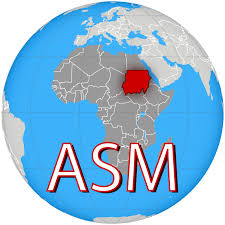
Al Sudaniya Mentoring (ASM) is an initiative that empowers, engages and inspires young Sudanese women to develop their personal and professional skills.
It was established in 2013 by British-Sudanese Mai Khidir, who holds a BSc in pharmacology and a master degree in public health. She lived in Sudan for a year in 2012 where she worked with different non-governmental organisations, then she was selected to join the MiLEAD Fellowship in Ghana, which is a transformational leadership development programme which aims to empower and develop pioneering young African future women leaders by assisting them to develop and implement life changing projects in their countries of origin. Khidir then established ASM to share the knowledge she gained with other young Sudanese women. ‘The idea of empowering women and supporting them so they have the courage to pursue their goals really spoke to me,’ she said.
ASM provides one-on-one mentoring programme to young Sudanese women by Sudanese women across the globe to build a global network of Sudanese women for knowledge and skills sharing. The ASM programme is for six months, from March to September every year, it is more than just a training programme and aims to create a lifelong sisterhood between mentees and mentors.
The programme focuses on three different areas:
Mentoring sessions: One-on-one sessions either online or face-to-face. Mentors and mentees have one session per week where they get to discuss various topics. The sessions are tailored-based on the needs and goals of the mentees. It can be about CV writing, public speaking, personal development, or confidence building. Every mentee comes with her specific set of skills she wants to develop.
Workshops: Held monthly, the workshops are based on the various aspects of the programme, like wellbeing, personal and professional development, applying for scholarships, time management, self-care and mental health, interview skills, and women enhancement. It also helps with team building activities where the mentees get to know each other and learn something new.
Projects: Mentees will be implementing community-based projects based on different areas. This year, the projects will focus on education. The idea is that the mentees can make an impact in their communities and help others with the knowledge they have learned.
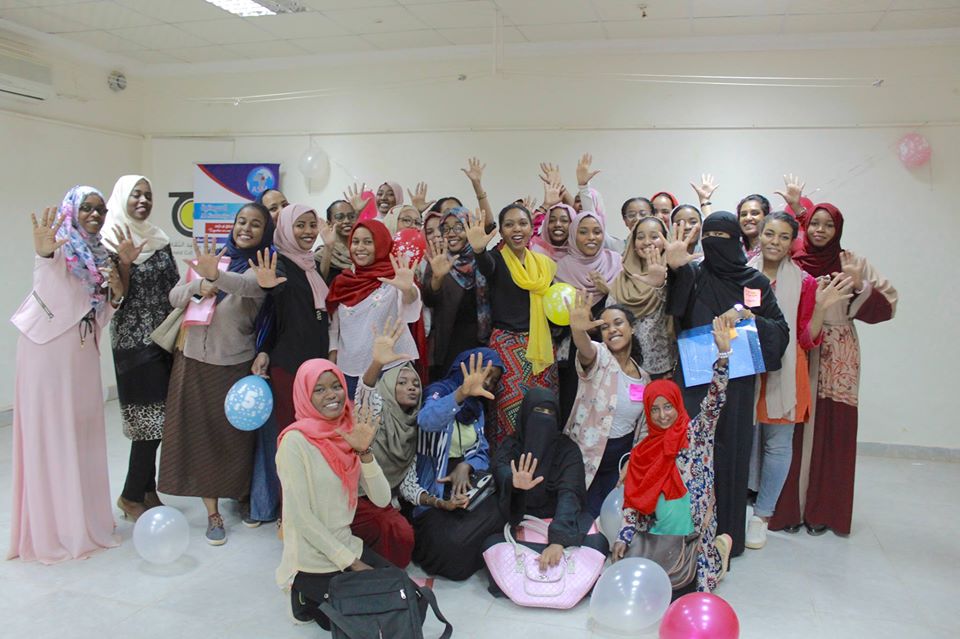
ASM’s six-month mentoring programme is for young women in Sudan aged between 17 and 22 who do not have the tools and resources they need to reach their full potential. ASM helps young women overcome the challenges they face day-to-day to unlock their full potential in their personal, social and professional lives. Many young women who have joined the programme as mentees to improve their communication, writing and public speaking skills as well as build confidence. Through the mentorship programme, ASM assists young women in solving problems and provide them with the support and guidance they need to develop their personal and professional skills so they will allow them to flourish, thrive, and become dynamic agents of change.
All of the mentors are volunteers, living in Sudan and other countries in the world. The criteria of recruitment are they have to be committed, hardworking, passionate, and have the time to mentor their mentees (four to six hours every week) via computer or mobile applications such as Skype, WhatsApp, IMO and more.
‘It’s not just a six-month programme. Our aim is to make a network or a sisterhood of Sudanese young women in Sudan and across the globe so they can help each other and help the community,’ said Khidir. Many of the mentees stay in touch with the ASM team and sometimes volunteer with them after graduation. This year, ASM is holding an alumni programme for mentees, who have graduated from ASM’s six-month programme to train them to become mentors themselves.
In addition to the main six-month mentoring programme, ASM launched many sub-programmes in 2018. The alumni programme, and Young Leaders Programme, which allows graduated mentees to become mentors to high school girls. ASM also had a programme in Wad Madani, which took place in the city of Wad Madani also a three-month programme where six girls graduated from it, and last they had the economic empowerment programme as they did a two-day workshop to develop the various skills of young women and after the workshops there was an event where they showcased their businesses. According to Khidir, one of the challenges of the programme is that most of the mentors and mentees are working or studying so managing their time with the programme is challenging.
To date, 85 young women benefited from ASM’s six-month mentoring programme. According to Khidir, ASM will continue to grow and provide-mentoring for more young women and girls in Sudan. ASM plans to launch more sub-programmes and expand outside Khartoum as well as establish a centre where they can hold meetings, workshops and other events.
For more information on ASM, visit alsudaniyamentoring.com or find them on social media on Facebook: Al Sudaniya Mentoring; Instagram: @alsudaniya; Twitter: @alsudaniya; LinkedIn: Al Sudaniya Mentoring.
Shabaka Social Entreprise
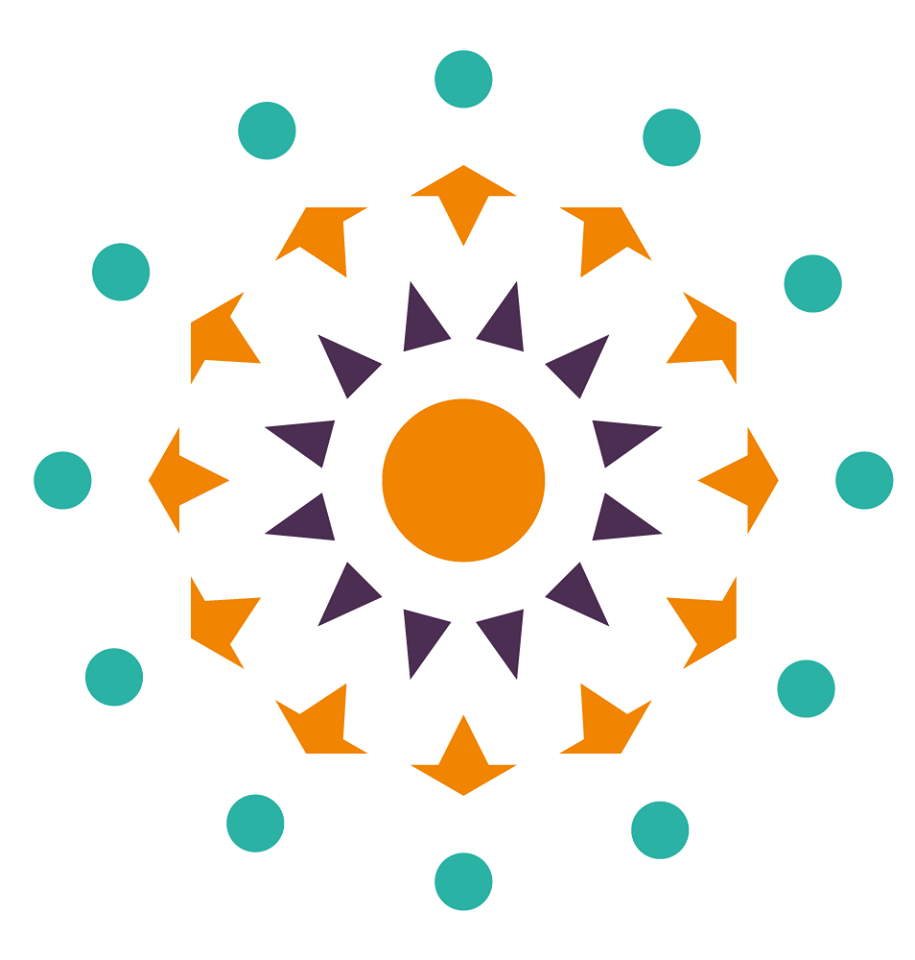
Shabaka is a UK-based social enterprise facilitating diaspora engagement in the development and humanitarian action with a focus on Africa and the Middle East, it all started when the founder of Shabaka. British-Sudanese Bashair Ahmed, who holds a PhD in migration, wrote a conference paperback in 2005 about Sudanese second-generation diaspora. ‘Writing the paper on the topic crystallised how much of a gap there was in the sector in understanding the role diaspora plays and supporting them,’ said Ahmed.
Ahmed works in development and humanitarian issues in different countries, she noticed that there’s a real gap with needs increasing while funding decreasing, so this is where diasporas can be engaged to provide their old homes with their knowledge and potentials as well as their access to data and resources. As a result, the whole team is composed of diasporas.
‘Shabaka focus on immigration and diaspora because there was so much energy and drive among diasporas to contribute to their communities, whether at their new or old homes. However, there was a divergence in efforts, a lack of recognition and at the core of Shabaka’s effort is creating a platform that supports diasporas to translate their aspirations to the concrete effort,’ said Ahmed.
The UK, where Shabaka’s members are currently based, is one of the spaces in which they can facilitate diaspora engagement with Sudan, and other countries. And as a research and advocacy focused organisation, they are able to operate in multiple spaces, including online and offline. ‘In the future, we will establish a physical presence in several locations,’ said Ahmed.
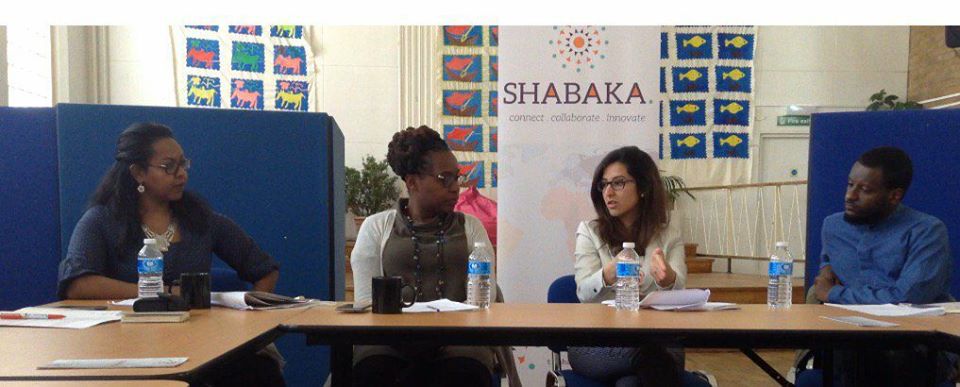
Shabaka’s vision is to support communities in the Global South to realise their economic, social and cultural rights. ‘We want to support the great work being achieved in Sudan, and elsewhere in the continent utilising the skills, knowledge and commitments of the diaspora,’ said Ahmed. For example, Shabaka conducted research exploring connecting diaspora volunteers virtually through online platforms to local organisations who work with youth and who may require external support in areas such as report writing, needs assessments, etc. Local initiatives are led by people who already know the terrain and the issues, and skilled diasporas can support such initiative, and in return, they also get to learn more about the environment and the issues in Sudan.
As Shabaka is a youth-focused organisation, they believe that Sudan’s uprising has given birth to a new generation of deeply engaged young citizens and leaders; however, Ahmed said, ‘Many of them lack key skills, access to resources, and broader networks to realise their ambitions for the country, support is required to provide the skills and knowledge needed to sustain the spaces they have created.’
Shabaka provides consulting and pro-bono services in the areas of research, training, migration, human rights, protection and advocacy. ‘Being a social enterprise means we are not limited or dependent on grants, and we offer consulting services in our areas of expertise to sustain our work,’ said Ahmed.
For more information on Shabaka, visit shabaka.org or find them on social media on Facebook: Shabaka Social Enterprise @shabaka.org; Twitter: @shabaka_org; LinkedIn: Shabaka
Abwab

Previously known as Al-Mustakbal, Abwab was established in 2012 as a youth development NGO. It’s run by a global network of Sudanese students and young professionals aiming to support the country’s development through helping Sudanese youth and to meet unmet educational and professional needs of Sudanese youth.
Abwab helps Sudanese youth realise their potential through improving access to professional and educational opportunities through their educational, advisory, and professional programmes.
Professional programmes: Realigns the skills attained by Sudanese students/ fresh graduates at home or abroad, with the skillsets that employers need. Our flagship project – the Internship Program, focuses on offering structured internship programs to Sudanese students in partnership with the top Sudanese firms. Additionally, we frequently conduct workshops and training sessions to address the development of professional skills.
Advisory programmes: Equips Sudanese youth with the skills and information necessary to become leaders and experts in various sectors. By facilitating access to leading international graduate programs. This by connecting Sudanese youth with experienced Sudanese graduate students/professionals in our global network who can offer professional, academic, and personal development structured mentorship remotely.
Educational programmes: Offers free educational resources both online and on-the-ground. Delivered through lectures, publications and courses. designed and developed by students, professionals and partner institutes in Abwab global network.
For more information on Abwab, visit abwabyouth.org or find them on social media on Facebook: Abwab @Abwabyouth; Twitter: @abwabyouth; Instagram: @abwabyouth; LinkedIn: Abwab
Institute of Tomorrow (IoT)

Institute of Tomorrow (IoT) is a youth think tank that takes into account developing an intellectual platform to provide trustworthy consultancy, agile designs and sustainable solutions to Sudan’s current critical problems and difficulties. This is to be done through elaborative engineering of a dedicated and solution-oriented knowledge base to Sudan’s top-ranked problems in different aspects.
IoT offers different services such as mentorship by linking Sudanese professionals from abroad with young and fresh graduates from different fields in order to bridge the brain drain-gain gap by creating a unique information-exchange platform. In addition, in partnership with Sudanese universities, IoT works with final year university students on their graduation researches and projects to address Sudan’s most critical challenges.
For more information on IoT, visit iotsudan.org or find them on social media on Facebook: Institute of Tomorrow @iotsudan; Twitter: @insOfTomorrow; LinkedIn: Institute of Tomorrow

